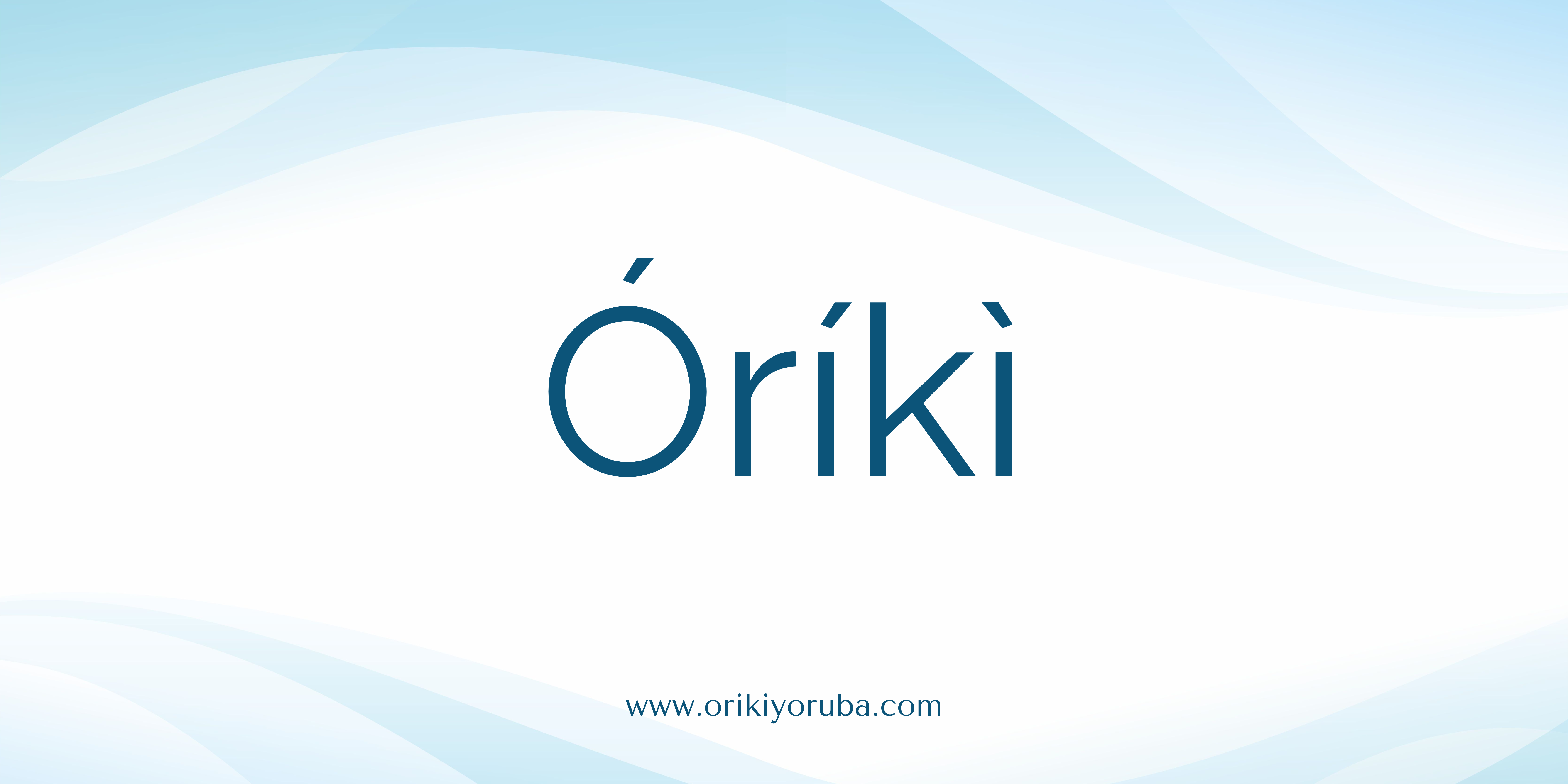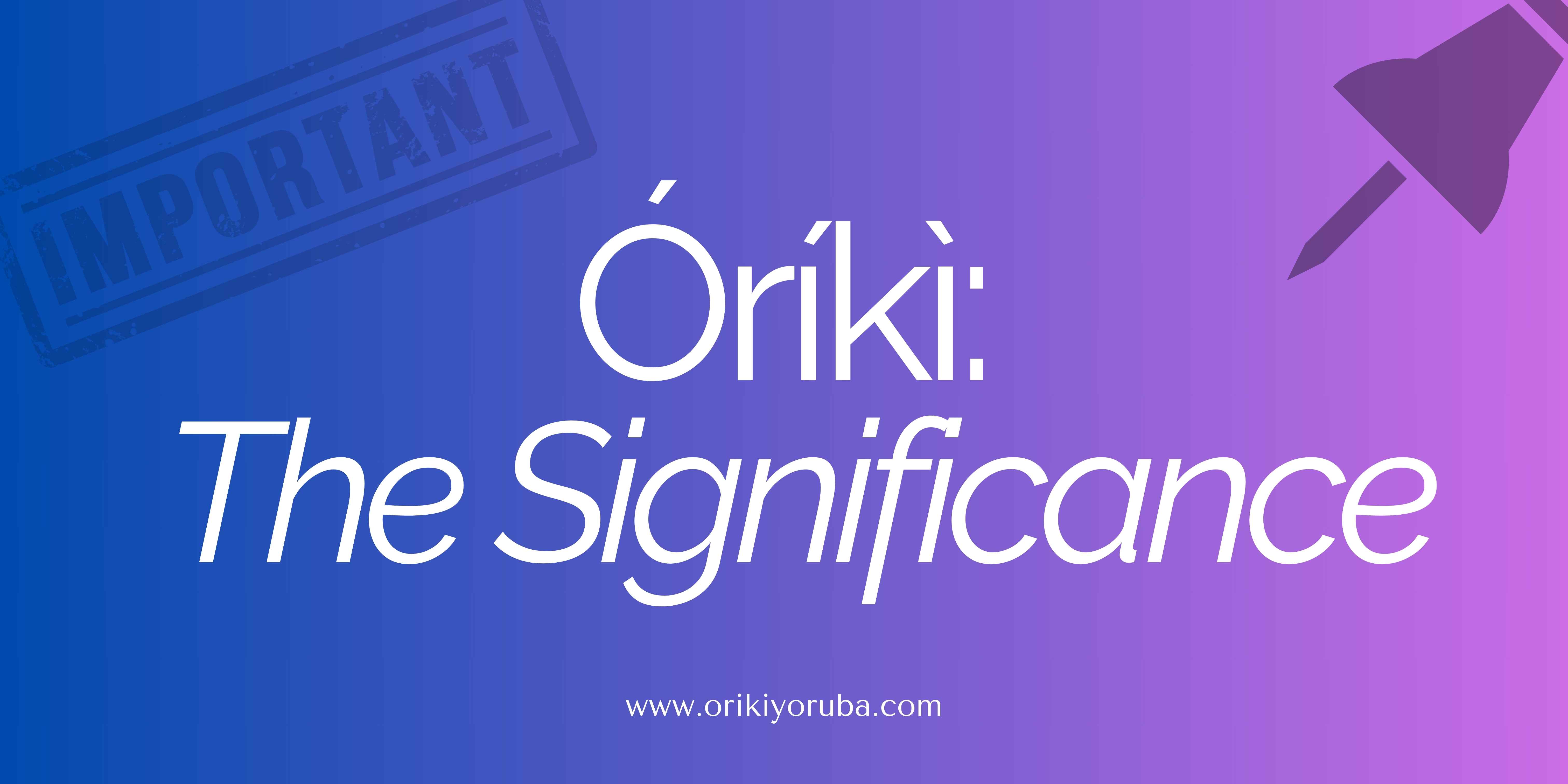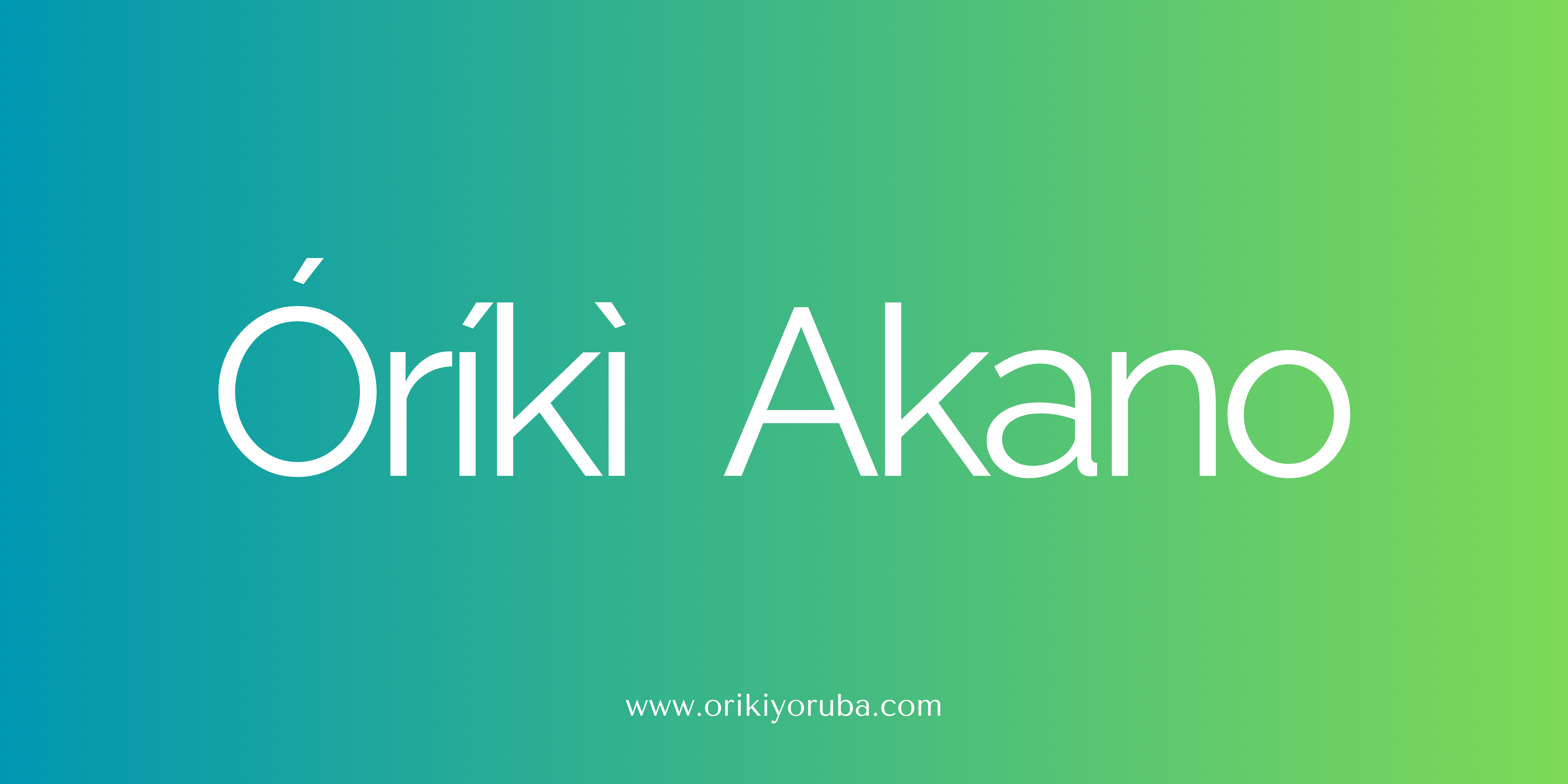Oyo State
Orikis from around Oyo State, South West Nigeria
By oriki_team

On days of reminiscence, it’s fascinating to reflect on how my grandparents greeted me. What I once perceived as a customary gesture became clearer with maturity – their greetings were actually expressions of praise in the Oriki of our town. From then till now, my affection for Oriki has remained steadfast.
Nonetheless, when a subject matter is being discussed, it is important to consider its root or history. It is no news that Oriki is deeply rooted in Yoruba history, a West African culture. Oriki, in its literal translation, “Orí” means “head” “Kì” means to praise, or greet, and offer accolades by way of a song or a chant. Regardless of its literal meaning, it is important to look into its literary meaning, that is, its meaning looking beyond the surface level. Oriki is a collection of names like attributive epithets that is praise, which are neither narrative nor descriptive. They are addressed to their subject and are felt to encapsulate and evoke in some way the subject’s essential powers and qualities.
In Yoruba culture, one’s identity intertwines closely with the community, echoing the African philosophy of “I am because you are.” This philosophy resonates deeply with the essence of Oríkì. Through the gift of Oríkì, we weave celebratory words of praise, honoring the individual while acknowledging their place within the community and lineage. We recount personal achievements alongside those of ancestors, creating a tapestry of identity and heritage.
Oríkì serves as a prayer, a prophecy, and a powerful affirmation, elevating your vibration by affirming your potential for greatness. Through carefully chosen Yoruba words, Oríkì speaks life into your past, present, and future. The rhythmic beats of the “gangan” talking drums resonate with the words, reinforcing the message and amplifying its impact on your soul.
It is also a major descriptive form that captures all the essence of its subject. Therefore, it is apt to say Oriki is a major art form that possesses elements of both praise and description in abundance.
Oriki is therefore relevant to the Yoruba ancestry history as much as the Yoruba ancestry history is relevant to Oriki. It has been a way for humans, in particular, the Yorubas, to remember who they are and not forget what they stem from. For example, the Oriki of the Ijebu people: “Oni mi je nubu omo Oluweri Omo Ajebu josa de Igbobini Omo Asale-gege booni noobinren Aya-kunle-tititi” which interprets to “Rovers of the deep sea, offspring of Oluweri”.
In conclusion, Oriki is more than just praise; it is a profound expression of identity, heritage, and aspiration in Yoruba culture. By embracing Oriki, we honor our past, celebrate our present, and affirm our future. Let us continue to cherish this rich tradition and keep its legacy alive for generations to come.



Orikis from around Oyo State, South West Nigeria